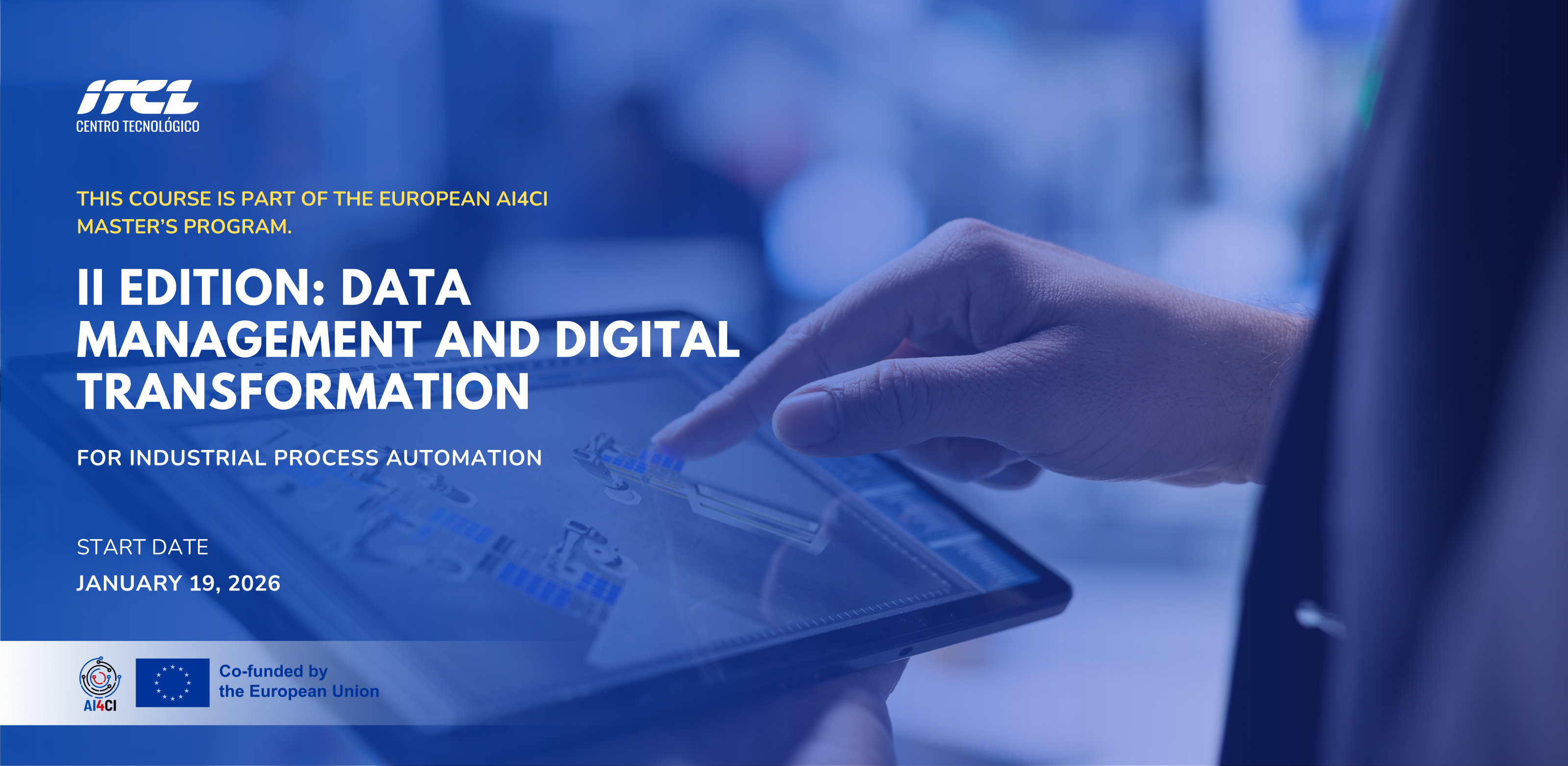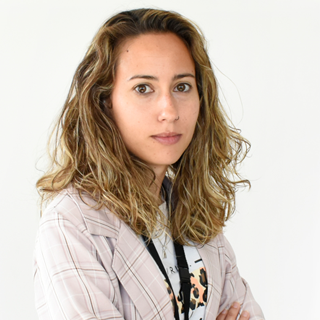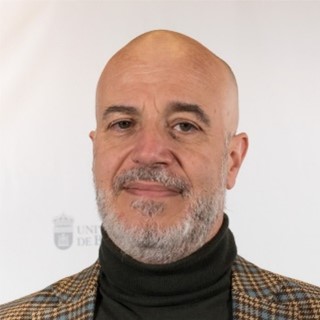Data Management and Digital Transformation in Industrial Process Automation
Data Management and Digital Transformation in Industrial Process Automation

Data management and digital transformation are key in the automation of industrial processes today.
In an increasingly competitive and dynamic environment, organizations need to adopt advanced technologies to optimise their operations, improve decision-making, and foster innovation.
This course, “Data Management and Digital Transformation in Industrial Process Automation”, focuses on providing the tools and knowledge necessary to effectively manage the data generated in industrial processes, as well as to implement digital transformation strategies that drive efficiency and sustainability.
Through case studies and cutting-edge studies, participants will learn how to integrate digital solutions that not only increase productivity, but also enable businesses to quickly adapt to market changes and new consumer demands.
The relevance of this course lies in its ability to prepare professionals to face the challenges of Industry 4.0, thus fostering a smarter and more connected future.
This course is part of the European AI4CI Master Artificial Intelligence for Connected Industries.
PEDAGOGICAL OBJECTIVES
- Explain the different layers that can coexist in IoT architectures in the industrial environment.
- Know the main existing hardware solutions for data capture.
- Know the main wireless communication technologies that can be found in the industrial IoT.
- Know the possible functionalities offered by data integration platforms
PREREQUISITES
- Academic training in fields related to engineering, industrial automation, computing, information technology or related disciplines.
- Basic knowledge of industrial automation principles and industrial processes may be required. Familiarity with concepts of data management, data analysis and digital transformation. Experience in the field of industrial automation or data management may be beneficial.
DESCRIPTION
Industry 4.0:
- Raise awareness of the importance of data, of data analysis.
Main sources of IIoT information:
Main data sources existing in industrial facilities. Functions that cover Aspects to take into account in the capture layer:
- Programmable controllers.
- Specific controllers, IoT probes.
- HMI, SCADA, explain the differences and what each one covers
Layers and architectures
Describe existing layers and architectures. Expose the elements and functions they cover and the interrelationship between them.
- Sensory layer.
- Control layer.
- IT layer.
- Cloud
- IT Architecture (Closed Bus, Open Bus, Open Bus+NAT).
Main protocols of each layer:
Describe the main protocols of each of the layers, characteristics, advantages / disadvantages.
- Analog/digital signals.
- Manufacturer-specific protocols: S7, FINS, MELSEC, METTLER TOLEDO, MARCHESSINE.
- Industrial standard protocols: PROFINET/PROFIBUS, MODBUS RTU/TCP, OPC UA.-DA
- MQTT, REST API…
Industrial IoT Gateways:
Explain the current state of some of the main commercial HW for protocol capture and adaptation, differences, advantages and disadvantages. VNODE, IBH, EWON, SIEMENS IoT2040
- New wireless communication technologies
Expose the main LPWA technologies, architectures, differences. Advantages and disadvantages. LORA, SIGFOX, NB IoT
EVALUATION MODALITIES

A project assignment to perform after the course
PROFESSORS
 | Lorena Saiz(ITCL Technology Centre) Industrial Engineer, with a Bachelor’s Degree in Automation and Industrial Electronics Main motivation at work is the professional growth, and to be able to collaborate with multidisciplinary teams. In addition, to be able to access to a diverse range of projects and resources that allow me to learn more and take on challenging assignments. |
 | José Luis Jabato(Ingernova, Aubá, University of Burgos) Bachelor´s degree in Electronics and Industrial Automation Engineering. |
COURSE INFORMATION
- DATES:
19-30 January 2026
- COURSE TIMETABLE:
Monday, Tuesday and Friday: 9:00 am to 6:00 pm
- MODALITIES:
Hybrid: either online or onside at ITCL
- REGISTRATION FEES:
Professional Industrial Technician: €800.
University students: €650.
- REGISTRATION FEE INCLUDES:
ITCL will issue a certificate referring to the international master’s degree AI4CI. European Master Artificial Intelligence for Connected Industries.
Contact us
Send us a message and we will contact you as soon as possible.
Polígono Industrial Villalonquéjar.
C/ López Bravo, 70. 09001. BURGOS. Spain
GPS coordinates:
42.3672 , -3.7529 // N 42º22.039′ W 3º45.189′
+34 947 298 471
info@itcl.es
